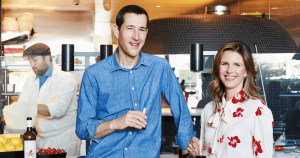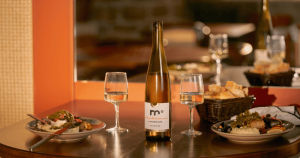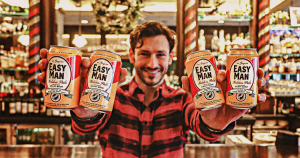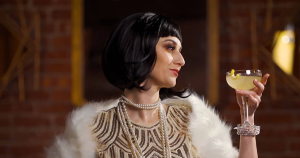Take a look at iconic imagery of the 20th century and you’ll notice that alcohol often took center stage. People have long viewed booze as a symbol of celebration and sophistication, fueling a culture with alcohol at the forefront of socialization. It seemed like no occasion was complete without a drink in hand. This perception didn’t just come out of nowhere; it was largely shaped by the popular media and advertising industry of the time, which portrayed alcohol use in a glamorous light in social situations. James Bond never ordered a seltzer with lime.
As you move into the early 21st century, the trend continues but evolves. Vibrant clubbing culture shaped this era, when alcohol flowed freely and celebrities were often the poster children for an excessive lifestyle. Pictures of A-listers like Lindsay Lohan and Paris Hilton, often photographed leaving clubs after a night of heavy drinking, were splashed across tabloids and rapidly circulated online. Even royals weren’t immune to the appeal of this nightlife scene. Iconic images of Prince William and then-girlfriend Kate Middleton enjoying themselves in clubs added a touch of glamor to this era’s drinking culture. This period seemed to elevate the notion that indulgence and excess were not only accepted, but were the epitome of “cool”. This was yet another period when media and advertising played a significant role in shaping the cultural perception of alcohol consumption.
Fast forward to the present and recent data suggests a shift in this cultural narrative. Generation Z—our current young adults—are breaking the mold with a trend towards drinking less. According to a 2022 study by the University of Michigan, only 43% of 12th graders reported having consumed alcohol in the past year, down from nearly 70% in the late ‘90s. As many avid TikTok users have observed, getting drunk is increasingly labeled “cringe”. The diminished allure of alcohol is evident not only on social media but also in today’s music and television. As Vice recently reported:
At the time of writing, not a single track in the UK Top 10 mentions getting f***ed up. “I don’t party but I heard Cardi there, so f*** it, I might attend it,” raps Cental Cee in “Doja” (can you imagine a rapper in the 2000s admitting they don’t party?). None of the most popular TV shows of the past few years – Sex Education, Heartstopper, even Euphoria – seem to glamorise [sic] drinking in the way TV used to, either. When Euphoria characters swig from bottles, rabidly or while driving, it’s meant to signify a serious issue. Binge-drinking in pop culture is now more often packaged as bleak and concerning – not edgy, laissez-faire, or something to aspire to.
These trends are not confined to the younger generations alone; they’re gaining traction among older cohorts as well. According to a study by Nielsen, among U.S. consumers who reported drinking less, 36% stated they had “lost interest in drinking alcohol in general”. This group comprises individuals who, irrespective of the frequency of their social outings, simply don’t feel the same allure towards alcohol that they once did. Perhaps as people age there is a natural inclination to foster quality connections and seek meaningful experiences, and, often, this shift doesn’t align with frequent nights out involving heavy alcohol consumption.
More and more, people are willing to challenge the long-standing association of alcohol with socializing and are seeking alternative ways to enjoy their leisure time. This could mean enjoying activities and experiences that don’t require a drink in hand. For others who love cocktail parties, going to the bar, etc, the only update required could be the substitution of booze-free alternatives into our existing social rituals. Whether it’s a preference for less frequent nights out or a general disinterest in alcohol, these trends mark an interesting shift in our social fabric.






